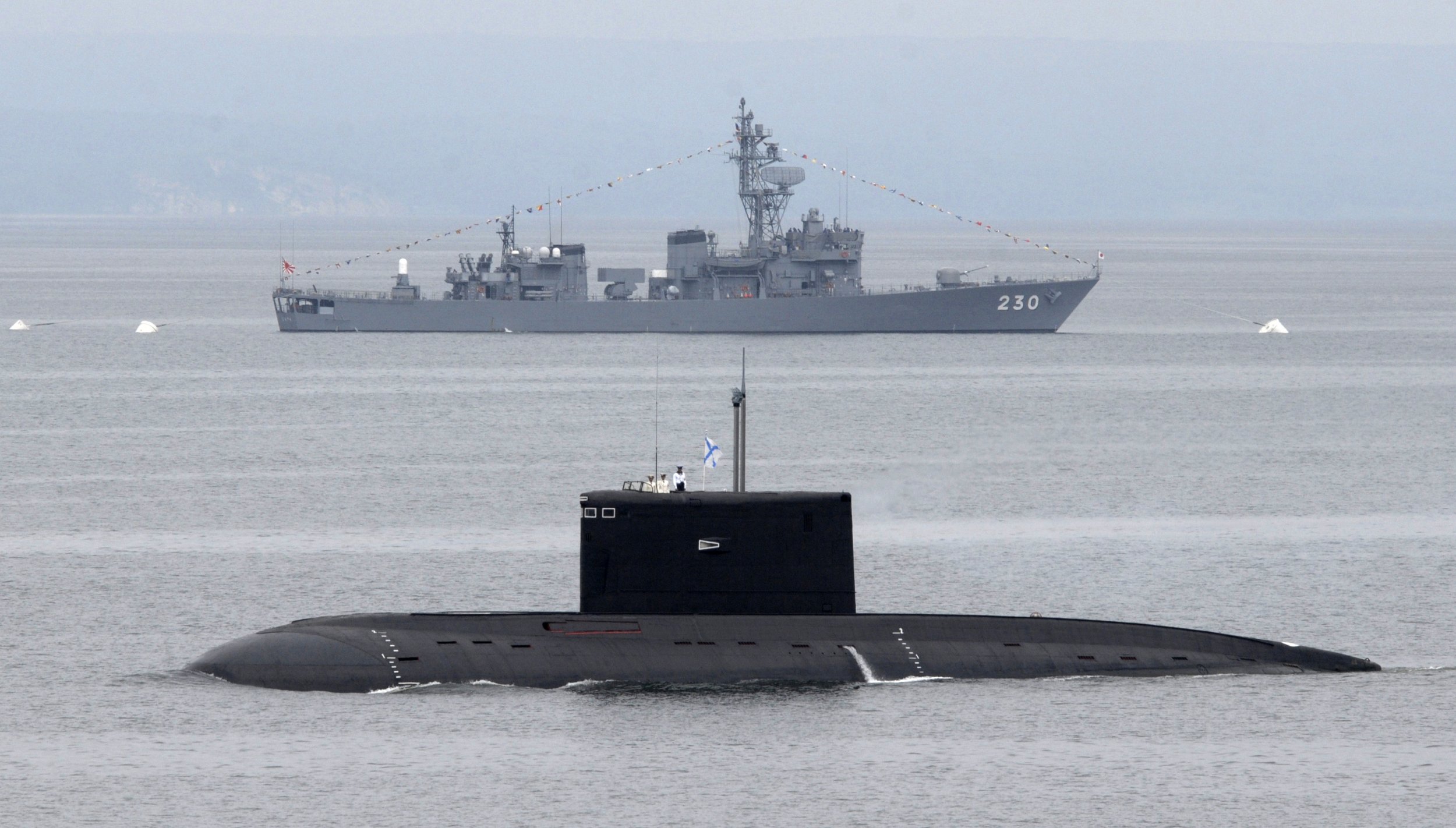
This article first appeared on the Brookings Institution site.
Reuters and the newspaper L'Obs reported last week that the French navy in January detected a Russian ballistic missile submarine off the French Atlantic coast in the Bay of Biscay. There was no military reason for that submarine to be there. Was this Moscow's latest attempt at nuclear intimidation?
The report was sourced to an official in the French defense ministry. On the record, the ministry declined to confirm or deny the story, though a navy official commented to Reuters: "Russian naval activity has been on the rise for several months, if not years."
Nuclear-armed submarine-launched ballistic missiles (SLBMs) have long been a part of U.S. and Russian strategic forces. They constitute the most important element of the American strategic triad, deploying some 60 percent of U.S. strategic warheads. Once the submarines go to sea and submerge, they are very hard to find and very survivable.
Ballistic missile submarines seek to remain undetected. U.S. Ohio-class boats on deterrence patrols are typically assigned large ocean spaces in which to operate, and no one ashore knows exactly where they are in that space. Open ocean increases the submarine's ability to maneuver to avoid any ships that may get near.
Coming close to a coast, on the other hand, increases the possibility of detection and limits the submarine's ability to maneuver away from a potential threat.
The Russian submarine that the French detected reportedly was a Delta-class boat. It carries sixteen SS-N-23 SLBMs, each of which can deliver multiple warheads to targets 8,000 kilometers (5,000 miles) away.
It did not have to sail near France to target France. Delta submarines home-ported on the Kola Peninsula can target France from dockside. From the more open waters of the Norwegian Sea, midway between Norway and Greenland, a Delta's SS-N-23s can reach not only all of France and all of Europe, but most of the continental United States.
There would be no logical military reason for a Russian ballistic missile submarine to enter the Bay of Biscay. Doing so would increase the possibility of detection—which apparently happened—and compromise its survivability.
Nuclear intimidation?
So why did the submarine go there?
Over the past few years—especially in parallel with Russia's illegal annexation of Crimea and military aggression in eastern Ukraine—the Kremlin has escalated its nuclear rhetoric.
Vladimir Putin regularly makes reference to his country's large nuclear arsenal, as if he fears the world might somehow forget. Russian outlets Sputnik and RT run articles boasting of Russia's nuclear capabilities. Moscow's ambassador to Copenhagen threatened to target nuclear-armed missiles against Denmark last year.
Meanwhile, nuclear-capable Russian Tu-95 Bear bombers have become far more frequent visitors to the air space near the United States, Canada and NATO European members than was the case three or four years ago. (During the Cold War, the United States regularly flew strategic bombers near Soviet air space, but it has largely discarded that practice.)
Moscow seems to see value in such irresponsible nuclear saber-rattling, at a time when it has adopted a more bellicose line toward the West. The Kremlin sometimes appears to be trying to convey an impression that, when it comes to nuclear weapons, Mr. Putin might be a little bit crazy.
It's all part of an effort to intimidate.
That would explain why a Delta-class submarine would visit the Bay of Biscay. Like the Bear bombers skirting NATO airspace, bringing close to France a ballistic missile submarine would send a political message—and make us all a bit more nervous.
Steven Pifer is Director, Arms Control and Non-Proliferation Initiative and Senior Fellow, Foreign Policy, Center on the United States and Europe, Center for 21st Century Security and Intelligence at the Brookings Institution. A former ambassador to Ukraine, Pifer's career as a foreign service officer centered on Europe, the former Soviet Union, and arms control. Pifer also had postings in London, Moscow, Geneva, and Warsaw, as well as on the National Security Council.

Uncommon Knowledge
Newsweek is committed to challenging conventional wisdom and finding connections in the search for common ground.
Newsweek is committed to challenging conventional wisdom and finding connections in the search for common ground.
About the writer
To read how Newsweek uses AI as a newsroom tool, Click here.








